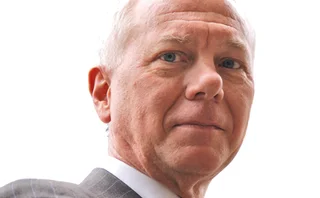
Economists draw up G-20 policy proposition
A group of academics have submitted fiscal proposals ahead of the G-20 meeting in London
The 194-page report, entitled 'Macroeconomic Stability and Financial Regulation: Key Issues for the G20', is published by think tanks the Centre for Economic Policy Research and VOX EU.
The study says the nations need to act quickly and together to restore stability and stimulate economic growth. "As the financial crisis deepens the temptations for each individual country to free-ride increase and the need for co-ordination becomes more evident," says the paper.
The report recommends the elimination of pro-cyclical elements of Basel II constraining banks into lessening lending as the economy slides into recession, by using a multiplier based on macroeconomic conditions.
A centralised clearing counterparty for credit default swaps is also recommended. This is an echo of calls by the European Commission and is another stone thrown against over-the-counter financial products blamed for a lack of transparency and increased counterparty risks.
Another recommendation is for the removal of the 'issuer pays' model for credit rating agencies, which regulators have also widely criticised as a contributor to conflicts of interest in the rating of structured products. Furthermore, the report calls for CRAs to be hardwired into the regulatory system to provide a benchmark for regulators.
A harmonised bankruptcy regime is also recommended to give supervisors increased intervention powers over banks before they become technically insolvent. This would be in line with the US system for 'prompt corrective action' in addition to new UK rules contained in the Special Resolution Regime.
The report is the result of a seminar with the G-20 deputies held on January 31 and hosted by the UK Treasury and the Bank of England, in addition to consulting academics and private-sector participants as well as the officials.
The proposal can be downloaded here: http://www.voxeu.org/reports/G20_ebook.pdf
Only users who have a paid subscription or are part of a corporate subscription are able to print or copy content.
To access these options, along with all other subscription benefits, please contact info@risk.net or view our subscription options here: http://subscriptions.risk.net/subscribe
You are currently unable to print this content. Please contact info@risk.net to find out more.
You are currently unable to copy this content. Please contact info@risk.net to find out more.
Copyright Infopro Digital Limited. All rights reserved.
As outlined in our terms and conditions, https://www.infopro-digital.com/terms-and-conditions/subscriptions/ (point 2.4), printing is limited to a single copy.
If you would like to purchase additional rights please email info@risk.net
Copyright Infopro Digital Limited. All rights reserved.
You may share this content using our article tools. As outlined in our terms and conditions, https://www.infopro-digital.com/terms-and-conditions/subscriptions/ (clause 2.4), an Authorised User may only make one copy of the materials for their own personal use. You must also comply with the restrictions in clause 2.5.
If you would like to purchase additional rights please email info@risk.net
More on Economics
Global investment outlook: 2026 and beyond
Broadening, steepening and weakening: Franklin Templeton’s top investment ideas for 2026 and beyond
Webinar – Nowcasting the US economy
Join CME Group Chief Economist, Blu Putnam, as he shares insights using alternative data and nowcasting to monitor developments in the US economy.
Fed Funds Futures in a Post-ZIRP World
As the FOMC returns to more active management of its key target rate, Federal Funds futures have experienced dramatic growth.
Challenging economic pessimism: an optimistic note
A contrarian, upbeat view of the long-term economic outlook
Economists, like hedge fund traders, need open minds
Economists, risk managers and traders must learn the lessons of crisis, says Kaminski
Fed wrong not to start QE tapering, says UBS economist
The surprise decision by the Federal Reserve last month not to scale back its quantitative easing programme will create more volatility, says economist







